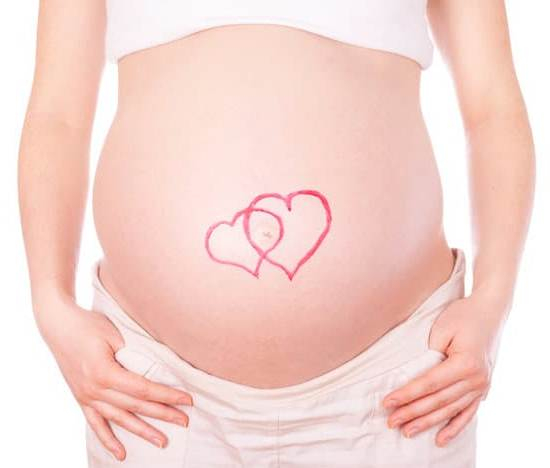Are you wondering how much caffeine is safe during pregnancy? Many expectant mothers have concerns about their caffeine intake and its potential effects on their baby. In this article, we will address the importance of monitoring caffeine consumption during pregnancy, as well as dispelling any misconceptions surrounding this topic.
Pregnant women often receive conflicting advice regarding caffeine consumption, leading to confusion and anxiety. It is crucial for expectant mothers to understand the potential risks associated with excessive caffeine intake and to make informed decisions about their daily consumption. By examining the latest research findings and guidelines from health organizations, we can gain a better understanding of the recommended caffeine limit for pregnant women.
In this introductory section, we will explore the concerns surrounding caffeine intake during pregnancy and highlight the importance of educating yourself on this topic to make informed decisions for both your own health and that of your unborn child. Let’s delve into the potential risks of excessive caffeine intake during pregnancy and examine the recommended daily caffeine limit for expectant mothers.
The Potential Risks of Excessive Caffeine Intake
Excessive caffeine intake during pregnancy can pose potential risks to both the mother and the fetus. It is important for expectant mothers to be mindful of their caffeine consumption in order to minimize these risks and ensure a healthy pregnancy.
One of the major concerns associated with high levels of caffeine intake during pregnancy is the increased risk of miscarriage. Research has suggested that consuming more than 200-300 milligrams (mg) of caffeine per day may elevate the risk of miscarriage, making it crucial for pregnant women to be aware of their daily caffeine intake.
In addition to the risk of miscarriage, excessive caffeine consumption during pregnancy has also been linked to preterm birth and low birth weight. Studies have indicated that high levels of caffeine intake can potentially lead to these complications, which can have long-term effects on the health and development of the baby. This underlines the importance of staying within the recommended limits for caffeine intake during pregnancy, as outlined by healthcare professionals.
It is essential for pregnant women to understand how much caffeine is safe during pregnancy and take necessary precautions to minimize any potential risks. To mitigate these risks, health organizations such as The American College of Obstetricians and Gynecologists (ACOG) recommend that pregnant women limit their daily caffeine intake to 200 mg or less.
However, it’s important for expectant mothers to consult with their healthcare provider about their individual circumstances and receive personalized recommendations based on their health status. By being informed about safe levels of caffeine consumption and taking proactive steps to moderate their intake, pregnant women can safeguard their own health and that of their developing baby.
The Recommended Daily Caffeine Limit for Pregnant Women
During pregnancy, it is essential for women to be mindful of their caffeine intake. While many enjoy a morning cup of coffee, the question of how much caffeine is safe during pregnancy often arises. Health organizations like the American College of Obstetricians and Gynecologists (ACOG) and the March of Dimes provide general guidelines and recommendations for pregnant women regarding their caffeine consumption.
According to these organizations, pregnant women should limit their daily caffeine intake to 200 milligrams. This amount is roughly equivalent to one 12-ounce cup of coffee. It’s important to note that caffeine content can vary across different sources such as tea, energy drinks, and chocolate. Thus, it is crucial for expectant mothers to be aware of the varying amounts of caffeine found in common beverages and food items.
Exceeding the recommended daily limit of caffeine during pregnancy has been associated with potential risks. It’s been suggested that excessive caffeine intake may contribute to adverse outcomes such as miscarriage, preterm birth, and low birth weight. As such, it is important for pregnant women to monitor their caffeine intake and be conscious of the potential impact on their health and the well-being of their baby.
| Organizations | Recommended Daily Caffeine Limit |
|---|---|
| American College of Obstetricians and Gynecologists (ACOG) | 200 milligrams |
| March of Dimes | 200 milligrams |
Sources of Caffeine in the Diet
Caffeine is a widely consumed stimulant found in various food and beverages, and it’s important for pregnant women to be aware of the sources of caffeine in their diet. Being mindful of these sources can help expectant mothers make informed decisions about their caffeine intake during pregnancy.
Common Sources of Caffeine
Some of the most common sources of caffeine include coffee, tea, energy drinks, and chocolate. It’s important to note that caffeine can also be found in some over-the-counter medications, so pregnant women should carefully read labels and be aware of hidden sources of caffeine in their diet.
Varying Amounts of Caffeine
The amount of caffeine found in different beverages and food items can vary significantly. For example, a standard 8-ounce cup of coffee typically contains around 95 milligrams of caffeine, while a 1-ounce serving of milk chocolate contains about 6 milligrams. Understanding the varying amounts of caffeine in different products can help pregnant women monitor their intake more effectively.
Hidden Sources
In addition to obvious sources like coffee and tea, there are several hidden sources of caffeine that pregnant women should be aware of. Some flavored waters, protein bars, and even decaffeinated coffee can still contain small amounts of caffeine. Being conscious of these hidden sources can help expectant mothers better regulate their overall intake.
Pregnant women should consult with their healthcare provider to determine how much caffeine is safe during pregnancy and make necessary adjustments to their diet accordingly. It’s important to remember that every woman’s body is different, so what works for one person may not work for another when it comes to determining safe levels of caffeine consumption during pregnancy.
Monitoring Caffeine Intake
During pregnancy, it is essential for women to be mindful of their caffeine intake, as excessive consumption can pose risks to both the mother and the fetus. Health organizations often recommend limiting caffeine during pregnancy, but how much caffeine is safe during pregnancy?
It is generally advised that pregnant women consume no more than 200-300 milligrams of caffeine per day, which is equivalent to about 1-2 cups of coffee. However, individual tolerances can vary, so it’s important for expectant mothers to discuss their caffeine intake with their healthcare provider.
To help monitor caffeine intake during pregnancy, here are some practical tips:
- Keep track of daily caffeine consumption by maintaining a journal or utilizing a smartphone app.
- Read labels on food and beverage products to identify hidden sources of caffeine.
- Avoid drinking large servings or multiple cups of caffeinated beverages in one sitting.
It’s also crucial for pregnant women to be aware of the varying amounts of caffeine in different sources. For example:
- A standard cup of coffee contains approximately 95 milligrams of caffeine.
- Black tea has around 47 milligrams of caffeine per serving.
- An energy drink can contain anywhere from 80-300 milligrams of caffeine per can.
By being conscious about their caffeine intake and making informed choices, pregnant women can prioritize the health and well-being of themselves and their developing baby. If there are any concerns or uncertainties regarding safe levels of caffeine consumption during pregnancy, seeking guidance from a healthcare provider is recommended.
Alternatives to Caffeine
During pregnancy, many women may find themselves craving the energy boost that caffeine provides, but it’s important to consider the potential risks of excessive caffeine intake for both the mother and the fetus. Fortunately, there are several alternatives to caffeine that can help pregnant women satisfy their cravings for energy and alertness without putting their pregnancy at risk.
Sipping Herbal Teas
One popular alternative to caffeine for pregnant women is herbal teas. While it’s important to be cautious with certain herbal teas during pregnancy, there are plenty of options that are considered safe. Herbal teas such as ginger tea, peppermint tea, and chamomile tea can provide a soothing and comforting experience without the need for caffeine. It’s essential for pregnant women to talk to their healthcare provider before consuming any herbal teas to ensure they are safe during pregnancy.
Decaffeinated Beverages
Another option for pregnant women looking to avoid caffeine is decaffeinated beverages. Decaf coffee and decaffeinated versions of popular beverages like tea or soda can offer a familiar taste without the stimulating effects of caffeine. However, it’s worth noting that some decaffeinated beverages still contain trace amounts of caffeine, so it’s important to check labels carefully when opting for decaf options.
Other Alternatives
In addition to herbal teas and decaffeinated beverages, there are other alternatives that pregnant women can explore. Consuming healthy snacks rich in nutrients like nuts and fruits or staying hydrated with water throughout the day can help maintain energy levels naturally. Additionally, engaging in light physical activity, getting enough sleep, and practicing stress-reducing techniques such as meditation or deep breathing exercises can also contribute to overall energy and well-being during pregnancy.
It’s crucial for pregnant women to discuss any dietary changes or concerns with their healthcare provider to ensure they are making safe choices for themselves and their growing baby. By considering these alternatives to caffeine, pregnant women can prioritize both the well-being of their pregnancy and their own comfort during this special time.
Discussing Caffeine With Your Healthcare Provider
It is crucial for pregnant women to have open and honest conversations with their healthcare providers about their caffeine intake. Research has shown that excessive caffeine consumption during pregnancy can pose potential risks to both the mother and the fetus. Therefore, discussing caffeine with a healthcare provider is essential in ensuring the safety and well-being of both the mother and the baby.
One of the primary concerns when it comes to caffeine intake during pregnancy is the possibility of miscarriage, preterm birth, and low birth weight. Studies have found a potential link between high levels of caffeine consumption and these adverse pregnancy outcomes. As a result, healthcare providers play a crucial role in providing guidance on the recommended daily caffeine limit for pregnant women. They can offer personalized recommendations based on an individual’s health status and medical history.
Healthcare providers can also assist pregnant women in monitoring their caffeine intake effectively. By discussing sources of caffeine in the diet, such as coffee, tea, energy drinks, and chocolate, healthcare providers can help pregnant women make informed decisions about their beverage and food choices. Additionally, they can provide practical tips on reading labels and being mindful of hidden sources of caffeine in various products.
Ultimately, discussing caffeine with a healthcare provider allows pregnant women to seek professional advice and support regarding their caffeine consumption. It empowers them to make educated decisions about managing their caffeine intake during pregnancy based on their unique circumstances. By fostering open communication with their obstetrician or midwife, pregnant women can prioritize the health and development of their baby while still satisfying their cravings for energy and alertness through safe alternatives to caffeinated beverages.
Conclusion
In conclusion, it is important for pregnant women to be mindful of their caffeine intake in order to ensure the health and well-being of both themselves and their unborn child. While moderate consumption of caffeine is generally considered safe during pregnancy, excessive intake can pose potential risks such as miscarriage, preterm birth, and low birth weight. Health organizations typically recommend a daily limit of 200-300 milligrams of caffeine for pregnant women, but individual tolerance levels may vary.
It is crucial for expectant mothers to be aware of the sources of caffeine in their diet, such as coffee, tea, energy drinks, and chocolate, and to monitor their intake accordingly. Additionally, seeking out caffeine-free alternatives like herbal teas and decaffeinated beverages can help satisfy cravings for energy and alertness without the potential risks associated with high caffeine consumption.
Ultimately, open and honest discussions with healthcare providers are essential for pregnant women to make informed decisions about their caffeine intake. Each woman’s individual circumstances and health status should be taken into account when determining how much caffeine is safe during pregnancy. By being proactive and seeking professional guidance when needed, expectant mothers can ensure a healthy pregnancy and a positive outcome for both themselves and their baby.
Frequently Asked Questions
How Does Caffeine Affect a Fetus?
Consuming caffeine while pregnant can affect the fetus because it can cross the placenta and reach the baby. This can lead to a higher heart rate and metabolism in the fetus, potentially affecting its development.
What Happens if You Go Over 200 Mg of Caffeine While Pregnant?
If a pregnant woman exceeds 200 mg of caffeine per day, it may increase the risk of miscarriage or having a baby with low birth weight. It’s important for pregnant women to monitor their caffeine intake to avoid potential complications.
Is Caffeine Bad in 3rd Trimester?
In the third trimester, consuming caffeine may not be recommended as it can lead to decreased fetal growth and low birth weight. Additionally, it can also affect the baby’s sleep patterns and activity levels after birth. Therefore, it’s best to limit or avoid caffeine during this stage of pregnancy.

Welcome to my fertility blog. This is a space where I will be sharing my experiences as I navigate through the world of fertility treatments, as well as provide information and resources about fertility and pregnancy.





